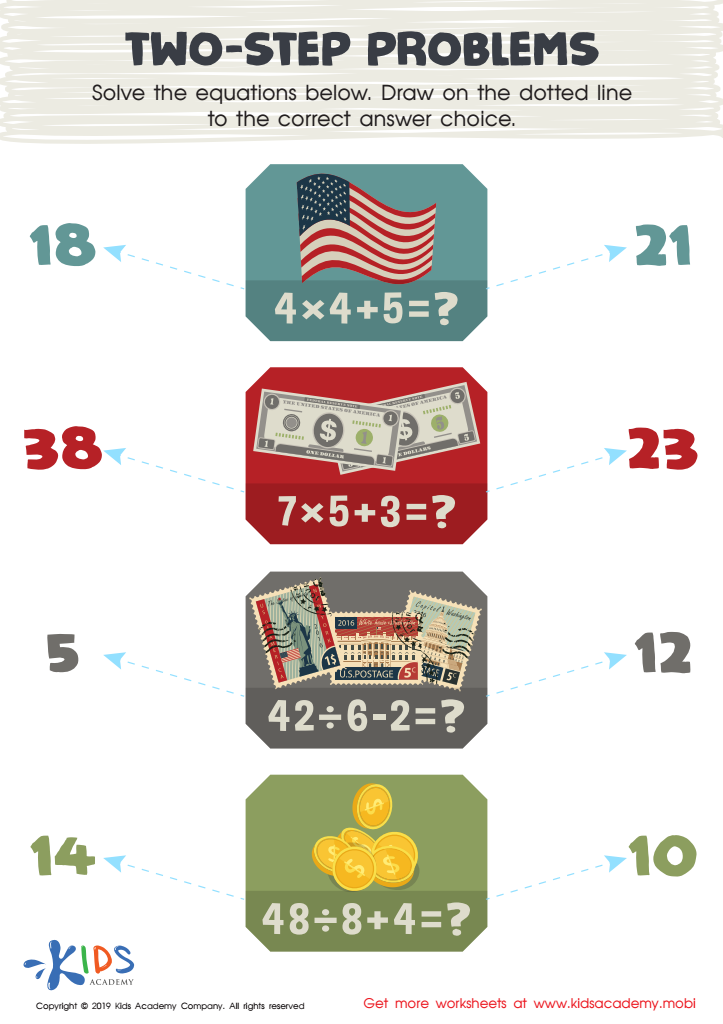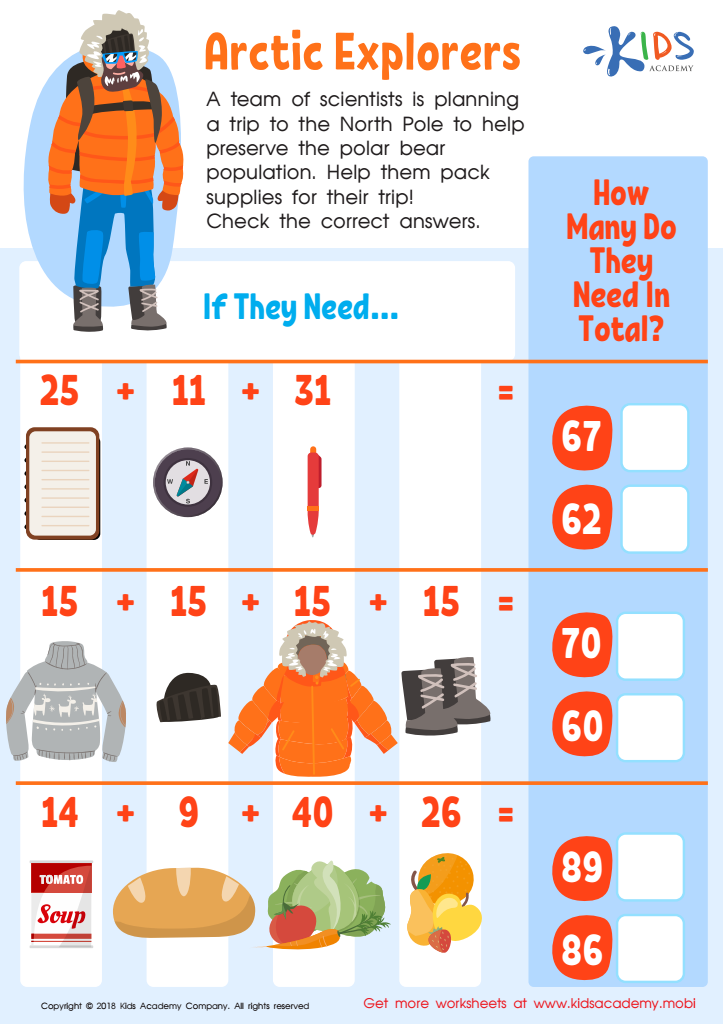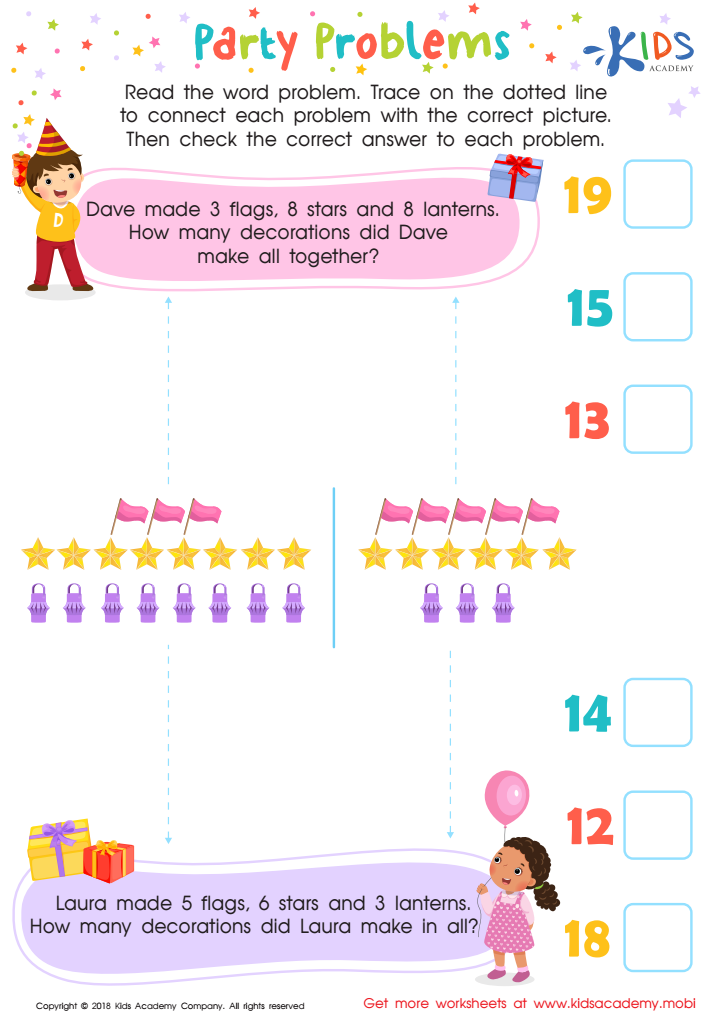Critical Thinking Normal Addition & Subtraction Worksheets for Ages 8-9
5 filtered results
-
From - To
Enhance your child's mathematical prowess with our "Critical Thinking Normal Addition & Subtraction Worksheets" designed for ages 8-9. These engaging worksheets, available on Kids Academy's website, inspire young learners to think critically while mastering addition and subtraction concepts. By incorporating problem-solving tasks, puzzles, and real-life scenarios, our worksheets help improve mental math skills, foster logical reasoning, and boost confidence in math. Perfect for honing essential math abilities, these printable worksheets make learning interactive and fun, turning challenging concepts into enjoyable learning adventures. Empower your child today with these expertly crafted resources that support key learning standards.


Tricky Problems Worksheet: Part 1


Two-Step Problems Worksheet


Arctic Explorers Worksheet


Word Problems: Assessment 2 Worksheet


Party Problems Worksheet
Parents and teachers should care about teaching critical thinking alongside normal addition and subtraction for children aged 8-9 because it fosters a deeper understanding of mathematical concepts and enhances problem-solving skills. At this developmental stage, children transition from rote memorization to more complex thinking processes. Integrating critical thinking helps them not only understand the "how" but also the "why" behind mathematical operations. For example, instead of just knowing that 7+3=10, a child who understands addition critically might grasp how adding three units to seven transforms their value, learning the concept of number bonds and place value.
Moreover, critical thinking skills enable children to approach problems flexibly and creatively. They learn to analyze, hypothesize, and reason through mathematical challenges, which are essential skills for higher-level math and everyday decision-making. It also promotes perseverance as they recognize that multiple strategies might be employed to reach a solution, thereby improving their confidence and curiosity.
Additionally, strengthening these skills early sets a solid foundation for academic success across all subjects, as critical thinking is a universal tool applicable to history, science, reading comprehension, and beyond. Parents and teachers, therefore, play a crucial role in fostering an environment where children can thrive intellectually and develop lifelong learning habits.
 Assign to My Students
Assign to My Students




















